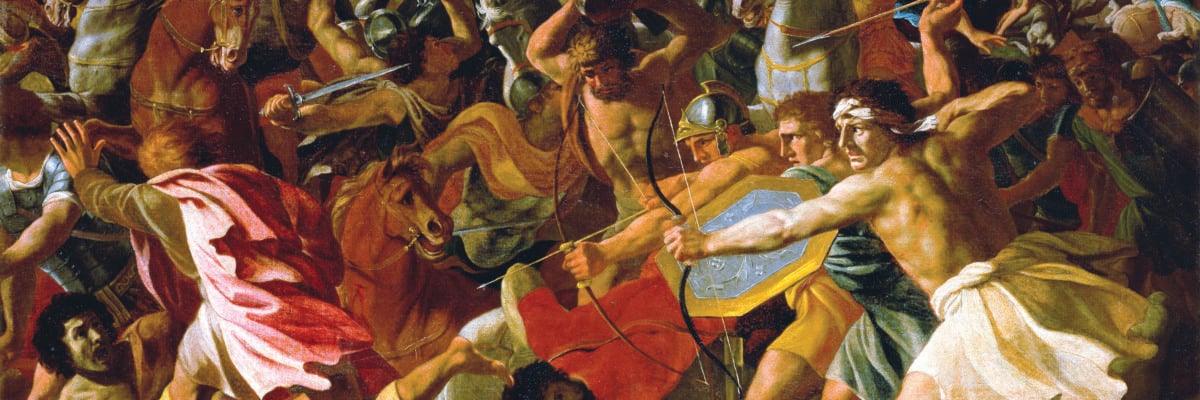
Question:
Answer:
The primary purpose of Scripture is salvation history and not literal history. In fact, the concept of literal history as we understand it today was a foreign concept to literature at the time the Old Testament was written. That’s not to say that there isn’t history in the Bible; there most certainly is; however, that is not its main point.
Given that historical accuracy of events was not the primary motive of ancient authors, it is highly unlikely that such events as those in the verses you cite were intended by the authors to be taken as literal events. Most scriptural scholars understand such events as symbolic expressions of the author’s moral judgment.
As Dei Verbum points out:
In composing the sacred books, God chose men and while employed by him they made use of their powers and abilities, so that with him acting in them and through them, they, as true authors, consigned to writing everything and only those things that he wanted. Therefore, since everything asserted by the inspired authors or sacred writers must be held to be asserted by the Holy Spirit, it follows that the books of Scripture must be acknowledged as teaching solidly, faithfully, and without error that truth that God wanted put into sacred writings for the sake of salvation (11, emphasis added).
Catholics study Scripture to understand what the author was trying to convey. Sometimes the intention of the author is not to write history but a moral.
The historical accuracy of whether the Israelite army actually wiped out the Midianites is questionable. Since the tribe reappears in Judges 6-8, the amount of spoils of war referenced in Numbers 31 is excessive, and it reports that not a single Israelite soldier was lost (Num. 31:49). The author’s portrayal of events has all the earmarks of a moral story rather than a strictly historical one.
The moral of whatever historical event this is exaggerating is about Israel’s place in the world and its responsibility to be faithful to its covenant. Men and women Midianites had played a role in convincing Israelites to worship idols (Num. 25), which violated their covenant with the Lord and resulted in a plague (Num. 25:8-9). It was only by eliminating everyone involved in the apostasy (including the Midianites) that Israel was able to regain its blessings from God.
The recording of the event is more about warning Israel against violating the covenant than it is about a military conquest. The exaggerated details of the battle are simply to show to all the blessings that flow from following the covenant and the curses that flow from violating it.



